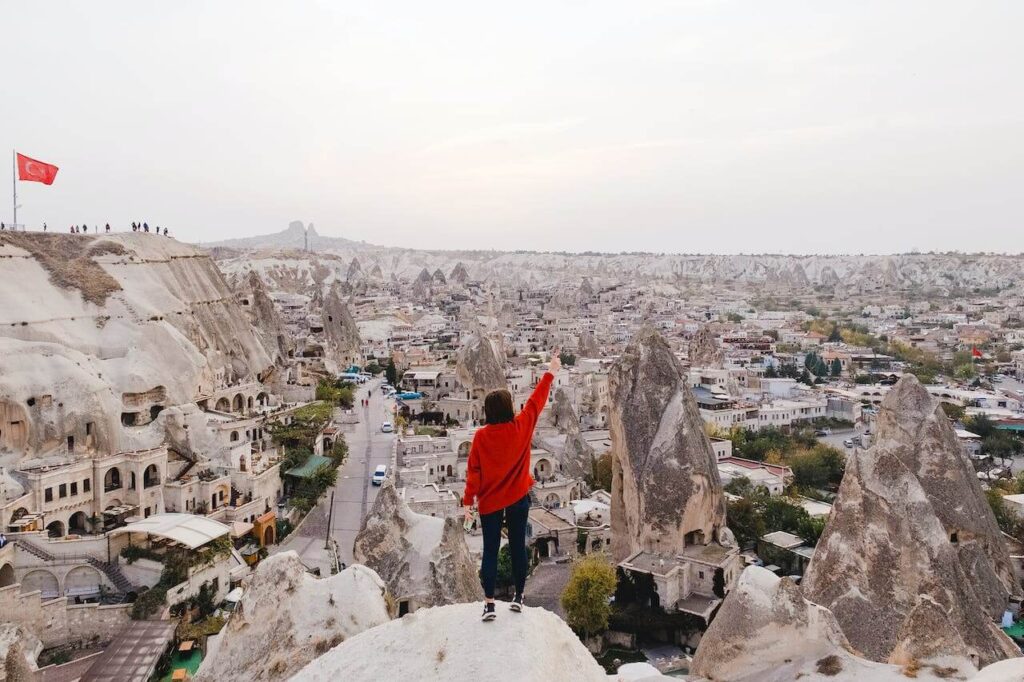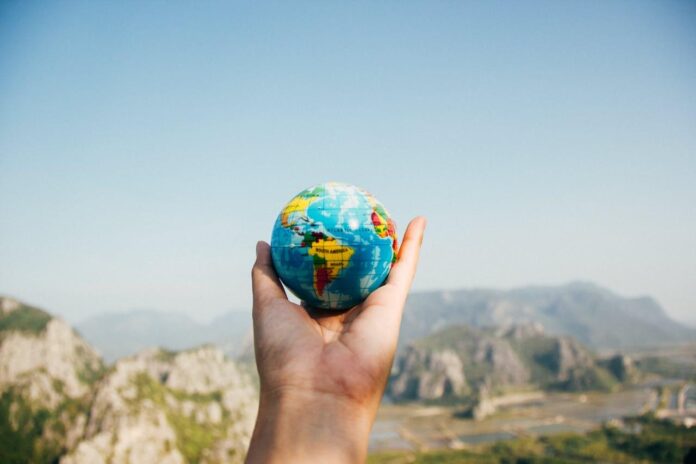Mental well-being is a crucial aspect of our everyday life. It not only affects our ability to cope with life’s challenges but also impacts our overall productivity and contribution to society. Despite its significance, mental well-being is often underestimated in many societies. This article explores 10 compelling reasons why travel is essential for nurturing mental well-being, offering new insights and perspectives on its benefits.
10 Ways Travel Enhances Your Mental Well-Being
Embracing Diversity and Empathy
Travel is not merely a physical journey; it is a transformative experience that broadens your horizons and deepens your understanding of the world. One of the most profound ways travel enhances your mental well-being is by exposing you to new cultures and people. Stepping out of your comfort zone and immersing yourself in unfamiliar environments fosters empathy and understanding. By engaging with diverse perspectives, you open your mind to a myriad of beliefs, traditions, and lifestyles.
This exposure to diversity has a remarkable impact on your mental health. It enhances your tolerance towards differences, be it cultural, social, or ideological. As you encounter people from various backgrounds, you learn to appreciate the richness of human existence in all its forms. This newfound tolerance serves as a powerful antidote to biases, prejudices, and stereotypes that might have been ingrained in your mind. By breaking down these barriers, travel alleviates frustration and promotes a sense of unity among people from different walks of life.
When you immerse yourself in a foreign culture, you are not just a spectator; you become an active participant in a global community. Interacting with locals, sharing stories, and experiencing their way of life cultivates a profound sense of empathy. You begin to see the world through their eyes, understanding their joys, challenges, and aspirations. This empathetic connection transcends borders and creates a sense of belonging to the larger tapestry of humanity.
Moreover, embracing diversity and empathy through travel enriches your emotional intelligence. You become more attuned to the feelings and perspectives of others, enhancing your interpersonal relationships and communication skills. This emotional awareness not only strengthens your connections with people but also contributes significantly to your overall mental well-being.
Adventure Boosts Hopefulness
Travel offers a plethora of outdoor activities that allow you to connect with nature in its purest form. Activities such as hiking, skiing, or simply walking amidst breathtaking scenery have a profound impact on your mental well-being. Engaging in these adventures amidst the splendor of nature instills a sense of hopefulness and optimism.
Also, consciously appreciating the natural beauty surrounding you during activities like walks elevates your mood. The awe-inspiring landscapes, from lush forests to majestic mountains, evoke a sense of wonder and reverence. As you navigate these natural wonders, you find solace in their timeless grandeur. The serenity of a snow-capped peak or the tranquility of a forest glade becomes a metaphor for life’s challenges – daunting yet conquerable.
This connection with nature instills hopefulness, reminding you of the vastness of the world and the infinite possibilities it holds. The physical exertion involved in outdoor activities releases endorphins, commonly known as “feel-good” hormones, which further enhance your mood. The combination of natural beauty, physical activity, and the release of endorphins creates a powerful cocktail of positivity and hope, improving your mental well-being.
In essence, travel not only exposes you to diverse cultures but also immerses you in the awe-inspiring beauty of nature. Through these experiences, you cultivate empathy, tolerance, and hopefulness, laying the foundation for improved mental well-being. So, embark on your next adventure, embrace the world, and let the transformative power of travel enhance your life in ways beyond imagination.
Stress Relief and Positive Outlook
In today’s fast-paced world, stress has become a common adversary, affecting people of all ages. The pressures of daily life can take a toll on mental well-being, making it essential to find effective stress relief methods. Travel emerges as a powerful antidote to stress, offering not just a temporary escape, but also lasting psychological benefits. Numerous studies have delved into the impact of travel on stress reduction and overall mood improvement, and the results are strikingly positive.
When individuals embark on a journey, whether it’s to a nearby town or a far-off country, they experience a change in environment that allows them to detach from their routine stressors. The unfamiliar surroundings, novel experiences, and the thrill of exploration divert the mind from worries, creating a mental space conducive to relaxation. Additionally, the anticipation of a trip and the excitement of planning contribute to a sense of anticipation and positivity, even before the journey begins.
Boosting Cognitive Function and Creativity
The human brain is a remarkably adaptable and creative organ. It thrives on novelty and stimulation, both of which are abundant during travel. One of the key ways travel enhances mental well-being is by boosting cognitive function and creativity through exposure to diverse cultures and environments. When you immerse yourself in different cultures, your brain is exposed to a myriad of new stimuli and it can improve your mental well-being.
It must navigate unfamiliar languages, customs, and traditions, stimulating cognitive flexibility—the brain’s ability to switch between different concepts and adapt to new situations. This cognitive flexibility, honed during travel, is not only crucial for navigating new environments but also for enhancing problem-solving skills in everyday life.
Moreover, travel serves as a playground for creativity. The amalgamation of various cultures, art forms, and perspectives fosters integrative thinking—the ability to combine ideas from different domains. As your mind absorbs the richness of a foreign culture, it starts making connections between disparate elements, leading to deeper thought processes and innovative ideas.
Additionally, the relaxation that comes with travel allows the brain to operate at its optimal level. Reduced stress levels enable better concentration and focus, further enhancing mental acuity. Engaging in activities such as exploring historical sites, attending local performances, or interacting with native communities during travel provides a stimulating environment that nurtures creativity and cognitive growth.
Enhanced Work Productivity
In the relentless pursuit of professional success, people often find themselves entangled in the web of work-related stressors. Balancing deadlines, meetings, and responsibilities can lead to mental fatigue and reduced productivity. Amidst this demanding backdrop, taking breaks from work, especially through travel, emerges as a game-changer.
Contrary to the misconception that time away from work hampers productivity, travel significantly boosts energy levels and work-related performance. When individuals indulge in a change of scenery, engage in leisure activities, and immerse themselves in new experiences, they return to their professional lives rejuvenated and revitalized.
Travel acts as a reset button for the mind, allowing individuals to detach from the daily grind and return with a fresh perspective. The exposure to different cultures, cuisines, and landscapes sparks creativity, enabling problem-solving skills to flourish. Moreover, the relaxation and stress relief gained during travel create a conducive environment for mental clarity and sharp decision-making. This newfound vigor and mental acuity have a direct positive impact on work-related tasks, leading to improved overall productivity.
Travel for Good

Travel is not just a personal indulgence; it is a powerful force for positive change, both for travelers and the communities they visit. Engaging in responsible tourism, which involves supporting local economies and embracing sustainable practices, fosters a profound sense of purpose and fulfillment. When travelers invest in local businesses, such as restaurants, attractions, and artisans, they contribute directly to the economic growth of the destination.
The ripple effect of this support is vast, touching the lives of countless individuals who rely on tourism for their livelihoods. By spending on locally-made souvenirs, dining in family-owned restaurants, and participating in community-driven attractions, travelers become active participants in the well-being of the destination. These interactions transcend monetary transactions; they create a sense of interconnectedness and mutual respect between travelers and the local community.
Moreover, responsible tourism extends beyond economic support. Traveling with an eco-conscious mindset promotes environmental sustainability, ensuring that natural wonders and cultural heritage sites are preserved for future generations. By choosing eco-friendly accommodations, participating in conservation initiatives, and respecting local customs and traditions, travelers contribute to the preservation of the destination’s unique identity.
Wellness Retreats for Mental Resilience
Participating in wellness retreats tailored to activities like yoga and meditation is akin to investing in the long-term well-being of both the mind and body. These retreats provide a sanctuary away from the hustle and bustle of everyday life, allowing individuals to focus on self-discovery and self-care. Engaging in yoga and meditation not only promotes physical flexibility but also nurtures mental resilience and improve mantal well-being. These practices instill coping skills that extend far beyond the retreat, becoming valuable tools in navigating life’s challenges.
The mindfulness cultivated through meditation equips individuals with the ability to manage stress, regulate emotions, and cultivate a positive outlook. By embracing these practices, individuals forge a path toward enduring mental well-being, fostering a sense of inner peace that remains with them long after they return from the retreat.
Pursuing Personal Happiness

Travel serves as a canvas upon which individuals can paint the portrait of their happiness. It provides a unique opportunity to indulge in activities on their bucket list, fostering self-care and genuine joy. Whether it’s exploring ancient ruins, indulging in culinary delights, or simply basking in the natural beauty of a destination, these experiences contribute significantly to mental well-being and self-fulfillment.
Pursuing personal passions during travel allows individuals to reconnect with their authentic selves, promoting a profound sense of contentment. These moments of bliss not only serve as cherished memories but also as reminders of the importance of prioritizing one’s happiness, encouraging individuals to integrate such moments into their everyday lives.
Strengthening Relationships
Traveling with loved ones transcends the realm of leisure; it becomes a profound journey of connection and belonging. According to Maslow’s hierarchy of needs, love and belonging are fundamental psychological needs, and travel has the remarkable ability to fulfill these needs in a unique and enriching way. Sharing travel experiences deepens the bonds between individuals, intensifying feelings of love, trust, and mutual understanding.
Whether it’s a family holiday on a tranquil beach or a culinary adventure with friends, these shared experiences create lasting memories and strengthen the fabric of relationships. The joy of exploring new horizons together fosters a sense of unity, enhancing overall well-being and nurturing the invaluable connections that enrich our lives.
Cultivating Lifelong Learning
Travel is a gateway to continuous learning, stimulating curiosity and intellectual growth. Every destination offers a wealth of knowledge, from its rich history and cultural heritage to its unique traditions and art forms. Engaging with new environments, historical landmarks, and diverse cultures provides a profound educational experience. It encourages individuals to expand their horizons, fostering intellectual curiosity and broadening their perspective on the world.
The process of learning during travel promotes mental agility, enhancing problem-solving skills and critical thinking. Moreover, it ignites a sense of wonder, reminding individuals of the endless opportunities for exploration and discovery. By embracing travel as a lifelong learning journey, individuals not only enrich their knowledge but also cultivate a deep appreciation for the diversity and complexity of the world, promoting continuous intellectual and emotional growth.
Understanding the transformative power of travel on mental health is the first step toward a happier and more fulfilling life. By embracing the diverse experiences and opportunities travel offers, you not only nurture your mental well-being but also contribute positively to the communities you visit. So, where will your next journey take you? Prioritize your mental well-being and embark on a life-enriching travel adventure today.

